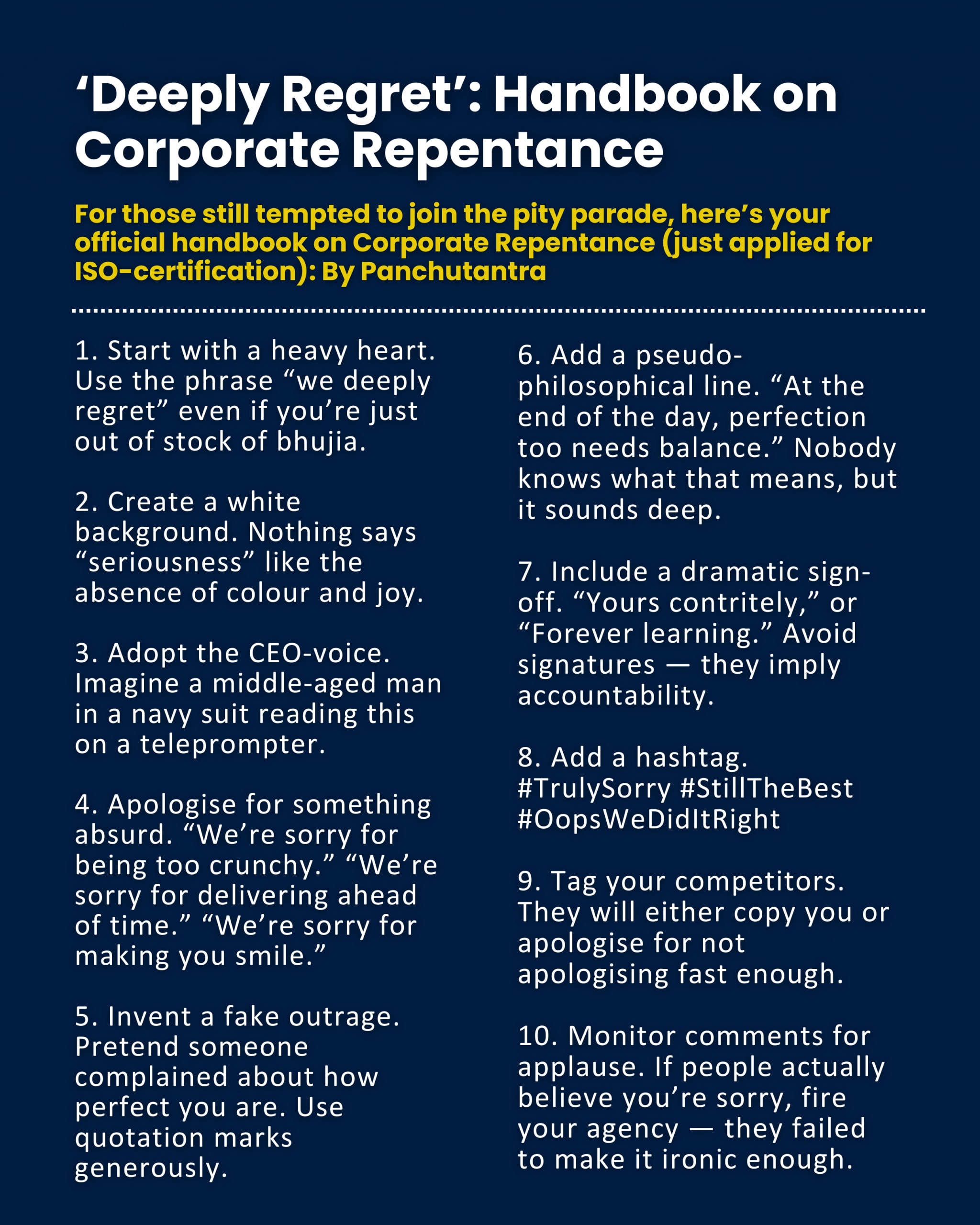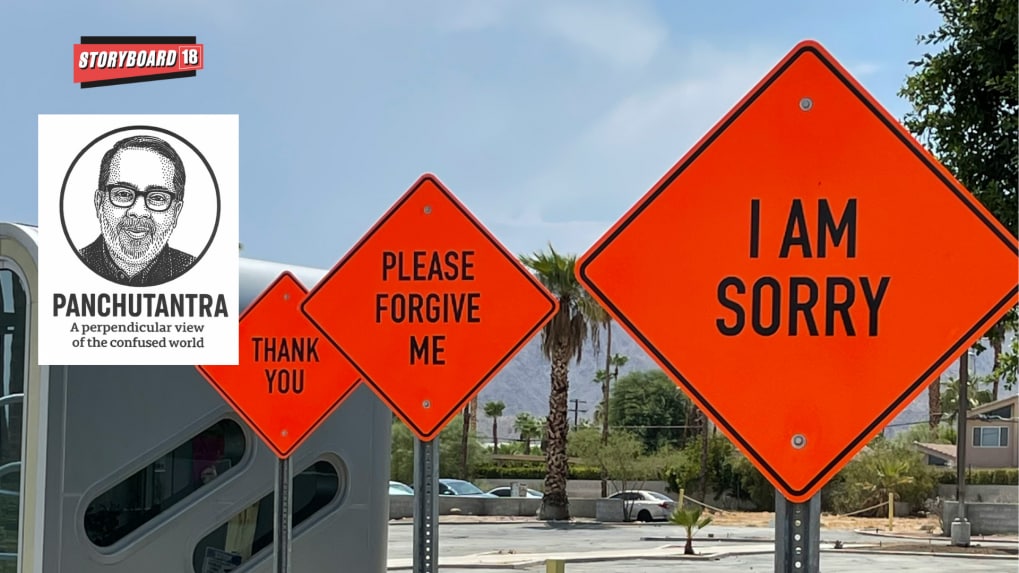The Apology Industrial Complex: How brands say Sorry, By Panchutantra
Once upon a time, apologies meant remorse. Now, they’re marketing strategy. From “sorry for being too crunchy” to “apologies for perfection,” brands have turned guilt into a KPI — with Helvetica, hashtags, and a white background to prove it.
ADVERTISEMENT
There was a time when an apology meant someone had done something wrong. A bridge collapsed, a promise broke, or someone’s data leaked faster than their shampoo claim.
Now, an apology means a brand has done something too right.
Suddenly, every company with a marketing department is deeply, tearfully sorry.
Sorry for being too crunchy.
Sorry for smelling too nice.
Sorry for giving too much cashback.
Apparently, we’ve reached a point where guilt is a KPI.
The average “brand apology” now follows a set pattern: white background, Helvetica font, and enough emotional restraint to qualify as corporate meditation.
The letter begins with: “We deeply regret any inconvenience caused.”
Translation: “We just realised ‘sorry’ gets more engagement than ‘sale ends Sunday’.”
The entire thing reads like a legal notice drafted by an intern who did one semester of mindfulness.
Marketing departments call this reverse psychology branding. I call it public relations for the emotionally constipated.
There’s an algorithmic purity to it. You pretend to cry, the internet pretends to care, everyone moves on.
One brand even apologised for “making people too happy.” Another said “sorry for perfection.” It’s like watching a billionaire say, “I feel terrible about my 200 crore home.”
The thing is, brands assume people are idiots. That we’ll see “We’re sorry” and melt with empathy. But today’s audience can smell fakeness faster than expired cologne.
We know a campaign when we see one. We’ve seen “real beauty,” “purpose washing,” and “gender neutral razors.” Now we’re onto “contrition chic.”
Somewhere, a planner actually said: “Let’s humanise the brand by giving it low self-esteem.”
For those still tempted to join this pity parade, here’s your official Panchutantra Handbook on Corporate Repentance (just applied for ISO-certification):

It’s not that brands have become more emotional. They’ve just outsourced sincerity to the creative brief. “Make it sound heartfelt but optimised for reels.”
Soon, apology will be a media line item. “Please budget ₹3 crore for regret.”
Imagine the next awards season:
“Best Use of Guilt in a 15-second Spot.”
“Grand Prix for Most Attractive Apology.”
And of course, the government will join in. “We regret the inconvenience caused by progress.” Airlines will follow: “We’re sorry the pilot was on time — we’re not used to that.”
Even relationships will adopt the format: “I’m sorry you felt hurt by my success in finding someone else.”
Somewhere between sincerity and performance marketing, apology lost its meaning.
We no longer feel bad — we just perform better.
The modern brand has replaced humility with Helvetica.
So the next time you see an apology letter saying “We’re sorry we made life easier,” please respond with the only line that still has integrity:
“Apology accepted. Now, stop talking.”
Read More: ‘Too many requests’: A citizen’s guide to Glitch-Based nation building. By Panchutantra
Read More: The Parable of the Pavement, By Panchutantra
Read More: Festival Survival: A user manual nobody asked for. By Panchutantra


